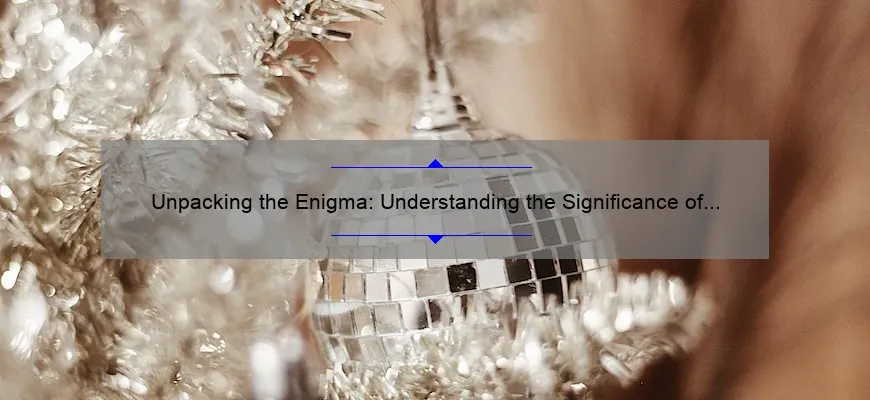Short answer what is bell hooks:
Bell Hooks (born Gloria Jean Watkins) is an American author, feminist, and social activist. She is best known for her work as a cultural critic with a focus on highlighting the intersectionality of race, gender, and class in society. Her writings cover topics such as politics, love, education, and power relations.
Breaking down the concept of Bell Hooks: A step-by-step guide
In today’s world, where people are increasingly aware of social and cultural issues surrounding race, gender, class, and identity politics, a theoretical framework that has developed prominence is that of Bell Hooks.
Hooks’ writings emphasize the intersectionality between various forms of oppression such as racism, classism,sexism,heterosexism etc.and how these forces shape individuals’ experiences within the society.To help understand this complex intersectional theory better we can break it down into step by step guide:
1.Identify Oppression
The first step towards understanding hooks’ work is identifying different ways in which oppression manifests itself around us.Discrimination based on one’s sex,race,class or orientation results in exclusionary practices.This identification helps bring awareness about oppressive practices when they happen so they’re not normalized or accepted anymore.
2.Understand Intersectionality
Intersectionality refers to the interconnected nature of all our identities.Therefore its always important for us to understand how marginalized groups are treated differently depending on their multiple identities.Its necessary to consider each person as an individual with unique backgrounds but simultaneously explore similarities shared by certain groups.They exist to highlight common struggles across barriers like race/gender/class rather than reinforcing them.
3.Develop Connections
Bell hook emphasizes healthy relationships based on mutual respect.In order for there to be progress towards equality,it is essential for connections between allies from different backgroundis including those traditionally dominant be nurtured.Since true change comes through collaboration and dialogue listening respectfully without imposing perspectives/cultures/beliefs shows commitment towards positive change.Also creating meaningful emotional ties allows non-judgemental support system fostering genuine authentic conversation amongst diverse voices.
4.Speak Up
Silence can perpetuate oppression so raise your voice where necessary. This may even require challenging pre-existing societal norms and values. In convincing through conversation, present the evidence supporting a change, rather than thinking people are innately biased.
5.Actively work towards equity
Moving on it is crucial to take action in any way possible for progress.Awareness alone isn’t sufficient.So wherever possible,champion programs/policies that promote inclusivity and equality.In addition to ‘speaking up’ this would be displaying commitment as well.Proactivity ensures it’s not just words but acts of courage aligned with natural moral code espousing fair treatment across all backgrounds.Rethinking our own biases frequently,the subsequent actions we choose will help close disparities increasingly.
In conclusion, Bell Hooks’ approach offers several valuable ideas at dismantling systemic structures of racism, sexism,classism et al through addressing how people percieve themsleves and others.Learning about intersectionality,informing ourselves,enabling accomplices via alliances,voicing opinions respectfully besides taking personal initiative upon what was learnt allows unlearning conditioned behaviours integral for advancing personal society amongst diverse backgrounds committed equally toward common goal.
Frequently asked questions about who Bell Hooks is and what she stands for
Frequently Asked Questions About Who Bell Hooks Is and What She Stands For
If you are interested in feminism, social justice, or academic discourse, then chances are high that you have heard of Bell Hooks. Born Gloria Jean Watkins, she adopted the pen name “Bell Hooks” in honor of her great-grandmother to separate herself from her past life. Her contributions to feminist theory and activism are renowned worldwide.
In this blog post, we’ll provide detailed answers to some frequently asked questions about Bell Hooks and clarify who she is and what she stands for.
Who is Bell Hooks?
Bell Hooks (born September 25, 1952) is a distinguished author, feminist theorist, cultural critic & educator on popular media culture analysis as well as race relations; effectively known for her writings on gender studies with a primary focus on intersectionality – denoting connections between various categories of identity like race/ethnicity/migration status/class/caste amongst others – which play vital roles in shaping an individual’s experiences or opportunities.. Growing up in Hopkinsville Kentucky during the Civil Rights era had shaped many things about how bell hooks view society today ahead scope..
Hooks has published more than thirty books covering topics ranging from black masculinity and love relationships to educational practices. Some notable titles include All About Love: New Visions (2000), Ain’t I A Woman? Black Women and Feminism (1981), Teaching Community: A Pedagogy of Hope(2003), The Will To Change: Men Masculinity And Love(20)04 among others ..
What does ‘feminism’ mean according to bell hooks?
Throughout her career until date even though labels can be limiting when it comes bell hook’s definition of feminism it may sound controversial but gives one a core understanding on proposed actions needed to change present-day injustices towards equality:
“Feminism,” according to Hook’s article “Understanding Patriarchy,” means working towards ending patriarchal practices that oppress women and disrupt other forms of oppression like homophobia, racism & transphobia.
What is Hooks’ philosophy on the intersectionality of race, gender, class?
Bell hooks’ one credible philosophical premise centers around intersectionality — a term coined by scholar Kimberle Crenshaw in 1989., which addresses how people are affected by more than one form of discrimination, disadvantage or privilege. According to hooks intersectionality helps understand social injustices more effectively way since being underprivileged isn’t limited because they experience discrimination or injustice in particular areas only but this can extend beyond any specific such as multiple identity categories playing diverse reasons for exploitation—racialized sexism, heterosexism,
Hooks is known for her criticism against the notion that feminism should prioritize the needs of white upper-middle-class women over those experiencing economic oppression just due to racial experiences.
Which intellectual themes stand out within bell hooks writing?
As mentioned before Bell Hook’s while covering different topics throughout their book catalogues there are some major themes worth noting-
Identity
Accordingly Hooks “identity shifts from meaning difference to understanding identity as an insistence on similarity.”
Education
She has great insights when it comes teaching many quotes you will find around what teachers can do better:
“Teaching re-named liberal activism always fails (it’s unable to create change) not so much due failing its aims but specifically because advocates misunderstand process systemic changes-social transformation”
Love Relationships
In All About Love: New Visions , Hook broke down barriers talks about why caring actions and kindness mattered more…
How did Bell Hooks contribute towards Black Feminism?
Hooks centred black feminism since emancipation was both imperative and intricately linked with liberation movements at large – Black feminist approaches view race/ethnicity; sex/gender sexuality poverty among others.. all experienced simultaneously . In 1981 she released Ain’t I A Woman? Black Women And Feminism beginning her journey into critical analysis through a black feminist lens. This led to her contribution in “Sisters of the Yam” and “Feminist Theory: From Margin To Center” which both scrutinize the frequently erasure or downplaying of Black women’s contributions by white feminists while still acknowledging gender oppression.
What social issues does Hooks discuss within critical race theory ?
Bell hooks writing contains deep intellect when grappling with social justice as it is influenced by racial perception as well – she critiques how racism negatively effects struggles –migrant rights LGBTIQ inclusion;
For bell hooks, recognizing difference is vital as part of liberatory consciousness. A mainstream way for doing this through rigors of Critical Race Theory applying culture studies power dynamics till today..
Conclusion:
The impact that Bell Hooks has had on feminist discourse, cultural criticism & understanding identity among other themes can never be overstated! Her scholarship explores abstract concepts whilst still centering individual experiences-of-oppression effectively inspiring collective activism against any forms operation such always stand out .
Top 5 fascinating facts about the inspiring scholar, activist, and author, Bell Hooks
Bell Hooks is a truly inspiring and influential figure in the world of academia, social justice advocacy, and literature. Her work has touched millions of people across the globe, helping to create new understandings of issues related to race, gender, sexuality, and class.
Here are five fascinating facts about this amazing scholar that you may not have known.
1. Bell Hooks is actually a pseudonym
Born Gloria Jean Watkins in Hopkinsville, Kentucky on September 25th, 1952, Bell Hooks adopted her famous pen name as an homage to both her maternal grandmother – whose middle name was “Bell” – and her mother’s surname before marriage was “Hooks.” The decision to use a different name allowed her to differentiate between private life versus professional life by keeping personal pages separate from more academic works.
2. Her writing style is unforgettable
From books like “Feminism Is For Everybody” which offers accessible examinations into key tenets feminist theoryand practices essential for creating necessary change within patriarchal societies throughout history up until present day; or Alternatives To Patriarchy: Anarchist Feminist Philosophy Restores Humanity And Nature writings pushing past hierarchies shackling ourselves & communities towards equity— Hook’s overall outlook on society speaks with precision & clarity without ambiguity
Her writing focuses on making complex theories understandable with clear explanations while presenting real-life examples relatable enough anyone can see themselves changed forever from having read it..
3. She has degrees from prestigious universities
Despite being raised working-class poor she pursued higher education first receiving Bachelor Arts degree English UCLA followed Master Of Art Wisconsin-Madison- finally earning Doctor Philosophy (PhD) University California Santa Cruz-she utilized newfound knowledge gained during school studies activist speaking circuits e.g liberation movements civil society post-secondary institutions positively shaping-movements students staff alike spaces welcoming conflict encourage learning!
4.She believes in intersectionality-and made American Society consider its own opinion regarding race relations quite differently
Hooks’ scholarship introduced intersectionality of race, class & gender. It connected how these oppressions intersect to create more complex systems of power-Analyzing often overlooked structures perpetuate violence and injustice at the expense marginalized communities. Hooks inspired sweeping changes in American society by challenging dominant cultural narratives on topics like racism and sexism culminating with deep-rooted structural change.
5. She has contributed so much to teach us all proper manners according mutual respect & peaceful resolution -making her inspiring work evermore relevant
Her latest books reflect emotional intelligence increasingly lost during modern times promoting healthy communication that celebrate emotions- demanding we intentionally learn living memory past-current achievement (in or out academia) changing long ingrained habits transforming selves along with the rest of society * Traversing oppositional debates happening since existence only weighed upon those who assume preoccupation as necessary wariness maintains our relative positions-and hooks tactfully shows ways towards harmoniousness so needed now then before!

